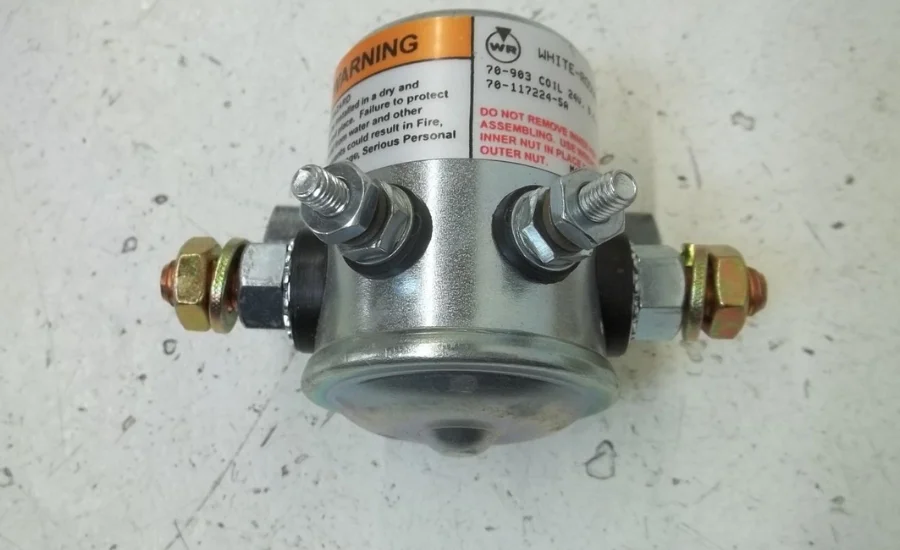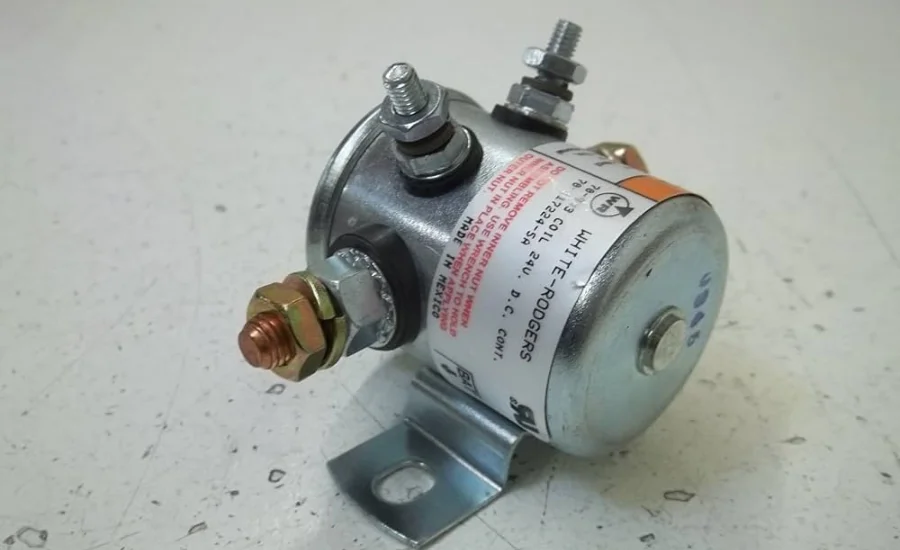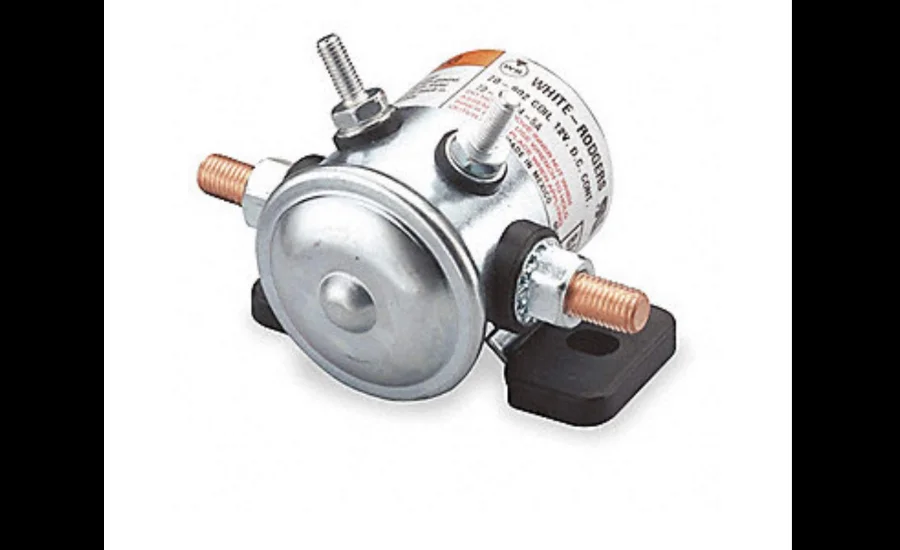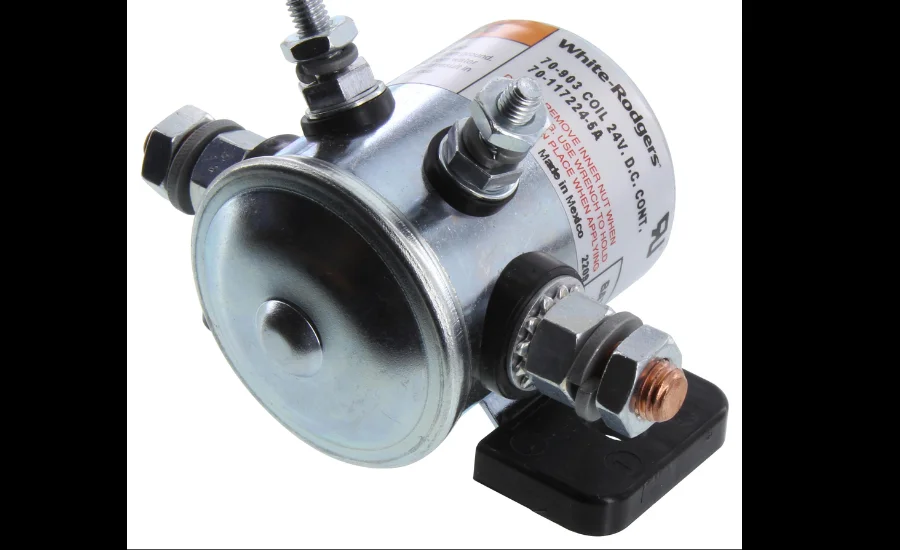864030-70 Locknut: 7 Critical Advantages for Industrial Use
The 864030-70 metric hex locknut is proving to be a key player in the fastener industry, offering enhanced performance across various sectors such as automotive and aerospace. Despite its small size, this locknut is designed to deliver robust, vibration-resistant connections, thanks to its innovative design and nylon insert.
This article delves into the standout features of the 864030-70 locknut, highlighting its advantages, versatility across different industries, and how it compares to other fasteners. You’ll also find practical advice on installing and maintaining these locknuts to maximize their efficiency and longevity. By the end, it will be clear why professionals are increasingly turning to the 864030-70 for reliable, secure fastening solutions.
The Versatility and Impact of the 864030-70 Metric Hex Locknut
The 864030-70 metric hex locknut stands out as a revolutionary component in the world of fasteners, with its influence stretching across various industries. Its innovative design, particularly the self-locking feature, has made it an essential part of sectors like automotive, aerospace, and marine environments. This article dives deep into what makes the 864030-70 metric hex locknut exceptional and why it’s becoming the preferred choice for professionals who require high-performance fasteners.
What is a 864030-70 Metric Hex Locknut?

The 864030-70 metric hex locknut is a specialized fastener designed to resist loosening under vibration or dynamic loads. This makes it especially valuable in demanding environments such as automotive assemblies and aerospace systems. As a metric fastener, it follows the metric system of measurement, offering precision and reliability in diverse applications.
Unlike standard hex nuts, which rely purely on tension created during tightening to maintain their hold, the 864030-70 incorporates a nylon insert. This insert significantly enhances its self-locking properties, creating friction between the nut and bolt to prevent loosening over time. Manufactured according to DIN 985 standards, this locknut ensures consistency and dependability, offering a more secure and vibration-resistant solution compared to conventional options.
The Nylon Insert Advantage
One of the key elements that sets the 864030-70 apart from standard fasteners is the inclusion of a nylon insert. This polymer-based component deforms elastically when the bolt threads through the nut, gripping the threads and creating a secure lock. This self-locking capability is particularly important in environments where vibration or fluctuating forces can loosen traditional nuts.
The nylon insert in the 864030-70 locknut is also highly resistant to wear and corrosion, making it suitable for use in a variety of challenging environments. The insert ensures that the nut remains firmly in place even under conditions of intense vibration or temperature fluctuations. However, it’s important to note that the nylon insert may not be ideal for high-temperature applications where the material could degrade. For extreme heat, all-metal locknuts may be more appropriate.
A2 70 Grade Stainless Steel Construction
Durability and corrosion resistance are among the top reasons why the 864030-70 is a game-changing fastener. Made from A2 70 grade stainless steel, this locknut can withstand harsh conditions without compromising its structural integrity. A2 stainless steel, also known as 304 stainless steel, is widely recognized for its excellent resistance to corrosion in most environments, including those with high moisture or corrosive elements like saltwater.
The ‘70’ in A2 70 refers to the strength grade of the material. This combination of corrosion resistance and strength makes the 864030-70 an excellent choice for a broad spectrum of applications. In particular, the fastener’s resistance to rust makes it a popular option for industries like automotive and marine, where exposure to moisture and corrosive elements is frequent.
However, while A2 70 stainless steel is highly resistant to corrosion, it is not entirely immune to it. Proper handling and installation practices are crucial to maintain its resistance properties. For example, using tools made from non-stainless steel can leave behind small particles that may rust, compromising the corrosion resistance of the nut.
Key Benefits of 864030-70 Locknuts
The 864030-70 metric hex locknut offers a number of distinct advantages, making it the preferred choice for many applications. From its self-locking ability to its corrosion-resistant properties, this fastener provides numerous benefits.
One of the standout features of the 864030-70 locknut is its corrosion resistance. A2 70 stainless steel provides excellent protection against rust and environmental damage, making this locknut suitable for use in outdoor applications or environments with significant exposure to moisture. The durability of this stainless steel makes it a popular choice in industries like automotive, marine, and construction.
The self-locking feature of the 864030-70 locknut is achieved through the nylon insert, which deforms elastically over the threads to create a friction fit. This ensures that the nut stays secure even under conditions of high vibration or dynamic loads. The self-locking mechanism eliminates the need for additional locking devices, such as washers or locknuts, reducing installation time and overall costs.
However, in high-temperature applications where the nylon insert may lose its elasticity, an all-metal locknut might be a better choice. The 864030-70 locknut is ideal for most situations, but professionals should consider the specific conditions of their application when choosing a fastener.
There is some debate about the reusability of locknuts with nylon inserts, like the 864030-70. Many experts believe that these locknuts can be reused multiple times without significant degradation in performance, especially in non-critical applications. The nylon insert does not wear down quickly, allowing for multiple assemblies and disassemblies.
That said, it’s important to carefully inspect the locknut before reuse. If the nut can be turned by hand on the bolt, or if the nylon insert appears damaged, it should be replaced to ensure proper performance. In critical applications, such as aerospace, it may be necessary to replace the locknut after each use to meet safety standards.
Wide Range of Applications

The 864030-70 metric hex locknut is used in a variety of industries due to its versatile design and reliable performance. Its ability to resist vibration, prevent loosening, and withstand harsh environments makes it indispensable in sectors where reliability and durability are paramount.
In the automotive industry, the 864030-70 locknut is frequently used in securing engine parts, suspension components, and wheel assemblies. The self-locking feature is particularly valuable in these areas, where vibration and movement are constant. The corrosion resistance of A2 stainless steel also ensures that the fastener remains reliable even after prolonged exposure to moisture, road salt, and varying weather conditions.
Another advantage in the automotive sector is the reusability of the 864030-70 locknut during maintenance and repairs. Since the locknut can often be used multiple times without losing its locking ability, it offers a cost-effective solution for automotive professionals.
The aerospace industry, known for its strict standards and requirements, often uses the 864030-70 locknut in the assembly of critical components. From avionics systems to engine parts, the locknut’s vibration-resistant properties ensure that connections remain secure in high-stakes environments. The aerospace sector benefits from the locknut’s ability to maintain its locking torque over multiple assembly cycles, although regulations in this industry may sometimes require the locknut to be replaced after each use to ensure the highest safety standards.
The 864030-70 locknut is also well-suited for use in marine environments, where constant exposure to water and salt can lead to corrosion in less durable materials. The A2 70 stainless steel construction of this locknut ensures long-lasting resistance to rust and degradation, making it ideal for use in boats, offshore platforms, and other marine applications. The vibration-resistant nature of the locknut is particularly beneficial in these environments, where constant motion from waves or engines can cause standard fasteners to loosen.
Beyond automotive, aerospace, and marine industries, the 864030-70 locknut is widely used in general manufacturing, construction, and equipment assembly. Its reliability and performance in preventing loosening make it an excellent choice for any industry where safety and stability are important.
Comparing the 864030-70 to Other Fasteners

When choosing the right fastener for a particular application, professionals often compare the 864030-70 to other options on the market. In terms of performance, cost-effectiveness, and ease of use, this locknut has distinct advantages over standard hex nuts and other locking mechanisms.
Standard hex nuts are widely available and easy to install, but they lack the self-locking feature of the 864030-70. In applications where vibration or movement is a concern, standard hex nuts often require additional locking methods, such as lock washers or double-nutting, to prevent loosening. This can increase assembly time and costs. The 864030-70, with its nylon insert, eliminates the need for these additional components, offering a more streamlined and secure solution.
The 864030-70 locknut also compares favorably to other locking mechanisms, such as all-metal lock nuts and serrated flange locknuts. All-metal lock nuts, which use distorted threads to create torque, offer excellent performance in high-temperature environments but often require higher installation torque and may not be reusable. Serrated flange locknuts provide good vibration resistance but may not be as reliable in maintaining their hold under extreme vibration as the 864030-70.
In terms of ease of use and consistent performance, the 864030-70 is a highly competitive option, particularly in applications that do not involve extreme temperatures.
Cost-Effectiveness
While the initial purchase price of the 864030-70 may be higher than that of standard hex nuts, its performance and potential for reuse make it a cost-effective choice over time. By eliminating the need for additional locking components and offering multiple uses in non-critical applications, the 864030-70 can save both time and money in the long run.
Installation and Maintenance Tips

To ensure that the 864030-70 locknut performs optimally, proper installation and maintenance are key. Following best practices during installation can prevent failures and extend the life of the fastener.
Applying the correct torque is crucial for the 864030-70’s performance. Under-tightening the nut can lead to loose connections, while over-tightening can cause material damage. Always use a calibrated torque wrench to apply the recommended torque values. The prevailing torque, which is the force required to turn the nut onto the bolt, should be consistent across assemblies to ensure proper locking.
Although the nylon insert in the 864030-70 is designed to withstand wear, it’s important to inspect the locknut for damage before reuse. If the nylon insert appears worn or damaged, or if the nut can be easily turned by hand, it should be replaced. Additionally, avoid using tools that could scratch or damage the stainless steel, as this can compromise its corrosion resistance.
Also Read: 2.5-1.3185
Final Words
The 864030-70 metric hex locknut is a highly versatile fastener, offering exceptional vibration resistance and durability across industries like automotive, aerospace, and marine. Featuring a nylon insert, this locknut provides a self-locking mechanism that ensures secure, reliable connections even in dynamic environments. Made from corrosion-resistant A2 70 grade stainless steel, the 864030-70 is designed to withstand harsh conditions, making it ideal for applications exposed to moisture, saltwater, and fluctuating temperatures.
Its easy installation, cost-effectiveness, and potential for reuse in non-critical applications further enhance its appeal. The 864030-70 locknut’s performance makes it a top choice for professionals seeking secure, long-lasting fastening solutions.
For exclusive insights and expert tips on fasteners like the 864030-70, stay tuned to Blog Blower – your go-to source for precision fastening solutions.






